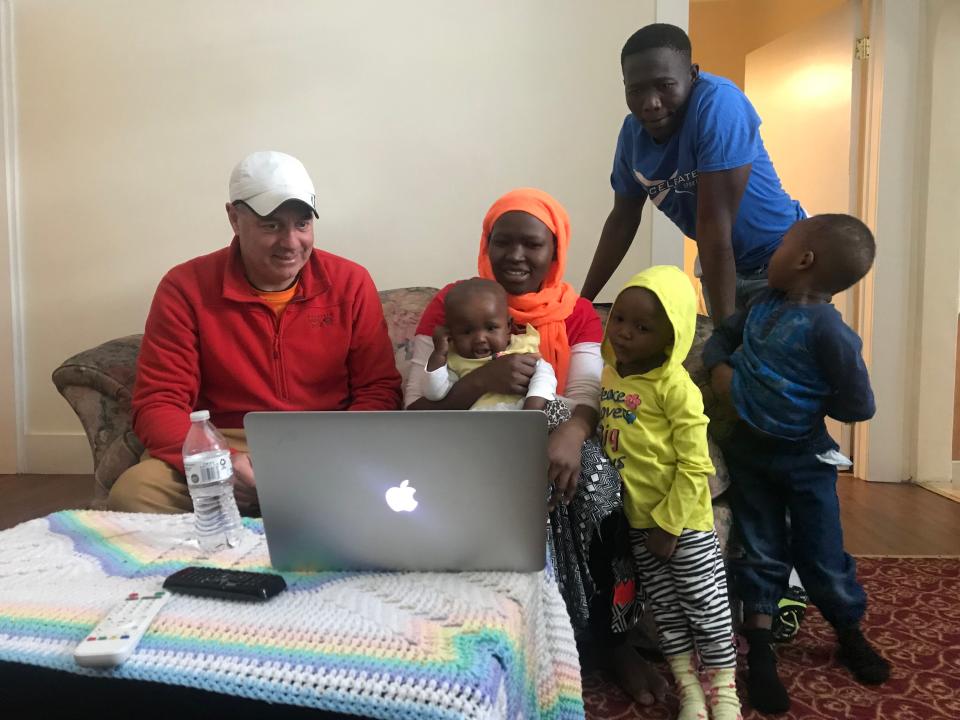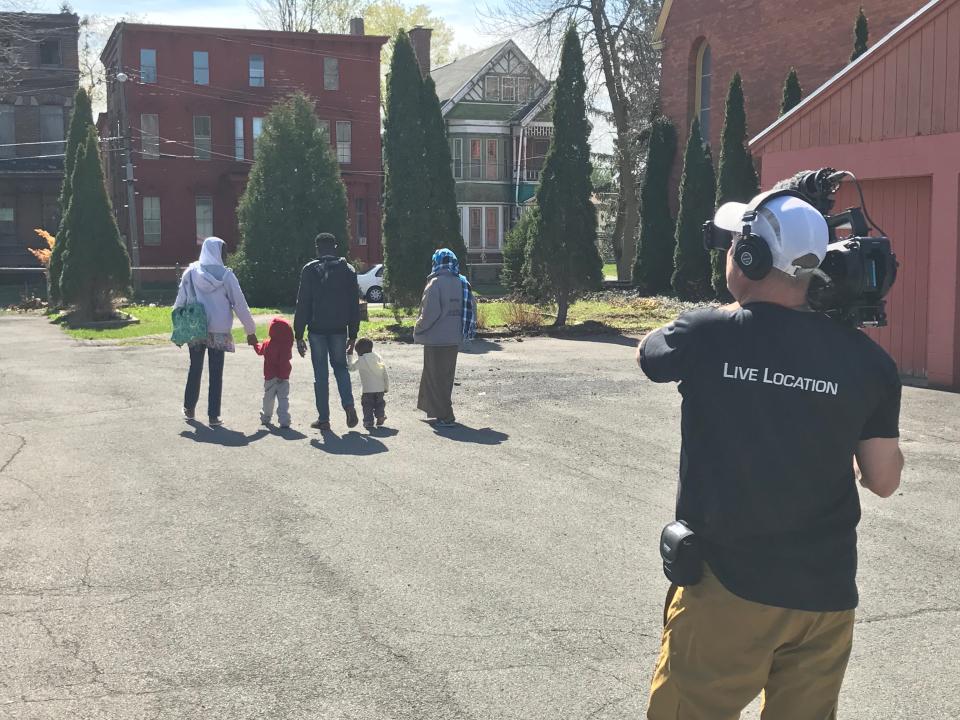What do refugees have to offer? This free Zeiterion event aims to show just that.
NEW BEDFORD — From the Portuguese and Cape Verdeans who carried the city's whaling industry, to the Central Americans who have a large presence in seafood processing and other key economic areas today, contributions of those who once called another nation home have always been a prominent part of New Bedford's story. That's why the story told by New York director Loch Phillipps' 2021 documentary "Utica: The Last Refuge" should feel familiar, and also why local organizers thought it was important to bring it to New Bedford with a free screening on Tuesday, June 13 at the Zeiterion Performing Arts Center.
"I was really moved by the power of the story," said Zeiterion's Associate Director of Education and Community Emma York, "but more specifically, by the connections I saw between Utica and New Bedford as a lifelong resident and former educator here."
On one level, it's a film about family, following the Azeins, a refugee family from Sudan, over a two-and-a-half-year period, chronicling their journey from arrival at the airport with two small children and a baby on the way in 2017, to the painstaking process of building a new life in Utica.
On another level, "Utica" tells the story of how that city's welcoming approach to refugees over the decades has been its salvation after economic downturn.

"About 20% of Utica's population is refugees and their children, so they have really kept the town afloat," Phillipps said, noting a population drop in the 1960s. "Now it's hovering at about 63,000, so if you were to subtract that 20% of the population ... it'd be below 50,000 and Utica would not be classified as an urban center or metropolitan area, which would cost them a lot of money.
Catch the latest local news: Fall River man charged with murder in car wash killing of New Bedford woman
"And their work ethic and such really brings a lot of employers to the area. So, it’s not hyperbole to say that they have saved the town."
In fact, according to one of the expert sources consulted for the film, "no urban area in the United States has ever rebounded from an economic downturn without a significant immigrant population," Phillipps said.
Inspiration for 'Utica,' and meeting the Azeins
Phillipps says he and a cinematographer friend became interested in immigration and refugee issues through film work they'd done for the International Rescue Committee, or IRC.
"We'd developed an understanding that refugee resettlement was a really great thing for the United States, and that things being said about refugees weren't true," Phillipps said, noting perceptions that they were dangerous and an economic detriment.
Once the idea for "Utica" was conceived, Phillipps needed subjects for the film. For that, the crew, having been in contact with the Mohawk Valley Resource Center for Refugees for help with the project, got permission to tag along with a resettlement worker to Utica International Airport in hopes they'd get to meet Sudanese refugees as they arrived — and that at least one of them would agree to be filmed.
"That's how we met Nasradin," Phillipps said.
A long journey
Before coming to the U.S., Nasradin, patriarch of the Azein family, and his wife Nada, had met at a refugee camp in Ethiopia where they both lived for six years, during which they had their first two children — a son, Mohamed, and daughter, Nisren — and became pregnant with second daughter Yasmin, who was born a U.S. citizen in 2017.
Check this out!: Sen. Warren helped New Bedford celebrate its new electric school buses
"Nasradin is rural African, in a lot of ways, arguably one of the hardest groups to resettle because they’re just so unfamiliar with how an industrialized economy works," Phillipps said.
The Azeins' story reaches New Bedford
York, who aside from her work at Zeiterion is also a humanities teacher at Our Sisters' School in New Bedford, said she feels a strong connection to the film, thanks, in part, to her experience with a former student who came to the U.S. in 2021 after the Taliban took over Afghanistan.

"Seeing her acclimate to a completely new culture and see her embraced and welcomed resonated with me," York said. "So with this film, I think there’s a lot for us to learn here in New Bedford because so often it is immigrants and refugees who are the backbone of our economy, who are working in the fish processing plants and in all sorts of industries that don’t get highlighted, but whose work is essential and integral to the functioning of our community and society."
More to the evening: panel discussion and more
After the film, York says there will be a panel discussion, featuring panelists Dabeeri Emad, an Afghan refugee now helping others resettle as a case specialist for International Institute of New England; Shelly Callahan, director of a refugee center in Utica as featured in the film; Phillipps and others. Non-profits like the Immigrants Assistance Center and Justice Center of Southeast Massachusetts will also be there to speak to during a tabling segment.
Nature watch: Piping plovers return to East Beach in New Bedford again. Here's why people are watching
Other details:
The June 13 event — in honor of World Refugee Day a week later on June 20 — is free to attend and starts in the Zeiterion lobby at 6 p.m.
Those who wish to attend are asked to reserve a spot ahead of time by calling 508-994-2900, visiting zeiterion.org, or stopping by the Zeiterion box office in person at 684 Purchase St.
The event is a collaboration between the Zeiterion, Immigrants Assistance Center, and New Bedford Creative.
This article originally appeared on Standard-Times: Zeiterion event to highlight refugees' contributions

